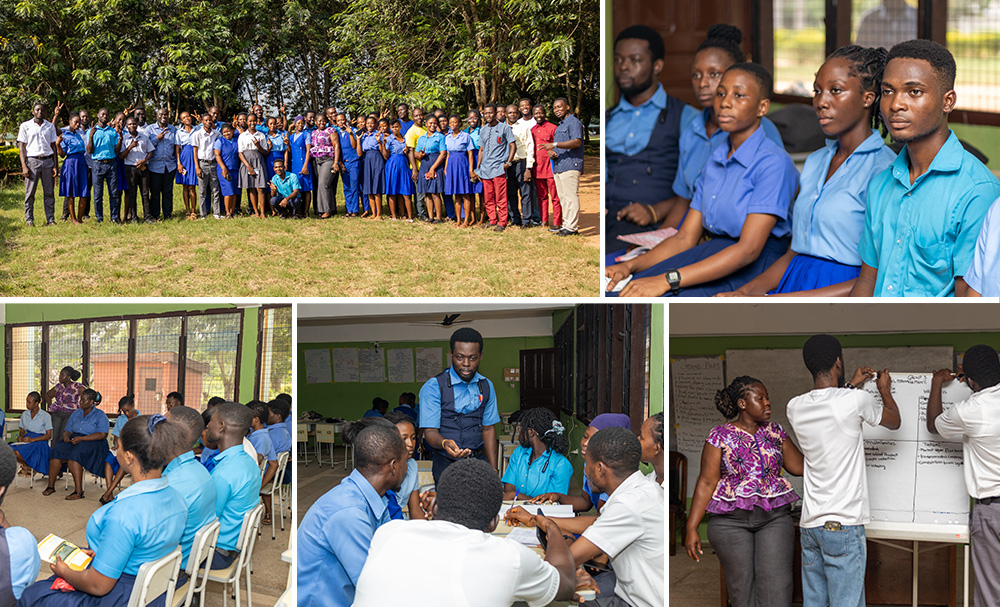The KNUST Nutrition and Sustainable Agri-food Collaborative, in partnership with the Mastercard Foundation (Nkabom Collaborative), has extended its entrepreneurial training program me to Ohawu Agric College
The 10-day training brought together 30 participants to nurture entrepreneurial thinking and creative problem-solving across the agricultural value chain. It forms part of the Nkabom Collaborative’s nationwide initiative to re-orient agricultural education towards innovation, value addition and self-employment.
Mr Samuel Arhinful, Project Associate of the Nkabom Collaborative, emphasised the broader vision of the initiative. He stressed that the project aims to change the unemployment narrative among agricultural students across Ghana.
“Our goal is to build a new generation of agricultural students who think like entrepreneurs,” he said.
He explained that the aim has been to help students approach agriculture as a business, identify opportunities along the value chain, and create solutions that benefit their communities. He further mentioned that a call would soon be opened for participants to pitch their business ideas for funding.
Mr Alexander Sessi Kosi Tette, one of the facilitators of the training, explained that the session covered five core modules designed to give participants a hands-on understanding of agribusiness.
He explained that the training has been designed to expose participants to pathway to agripreneurship, business planning using the Nkabom Hybrid Business Model Canvas, marketing, financial management, and pitching.
He added that the approach was highly interactive and activity-based, incorporating tools such as image theatre and problem-tree analysis to make learning practical and engaging.
“Our training approach is very hands-on and engaging,” he said.
The college hopes to deepen its collaboration with the Nkabom team by establishing a tree-planting project, exploring crops such as cashew and cocoa supported by solar irrigation systems.
Vice-Principal of Ohawu Agricultural College, Mr Mawuli Sevor, expressed gratitude to the team from Nkabom Collaborative, describing the initiative as timely and transformative.
“Nkabom means ‘coming together,’” Mr Sevor remarked. “We look forward to continuing this partnership to make Ohawu a hub for sustainable agricultural innovation,” he said.
He explained that the college had previously trained its graduates mainly for government extension roles. However, since such opportunities had become limited, the focus had now shifted towards empowering students to think as agripreneurs.
“The Nkabom project aligns perfectly with this vision, it encourages students to see agriculture as a viable business venture rather than waiting for government employment,” he stated.
Mr Sevor added that the initiative will go a long way in reshaping students’ perceptions of agriculture. He noted that many young people still associated agriculture with cutlasses and hoes.
“Through Nkabom, the youth will now understand that it’s a complete value chain with room for innovation, technology, and entrepreneurship,” he said.

















